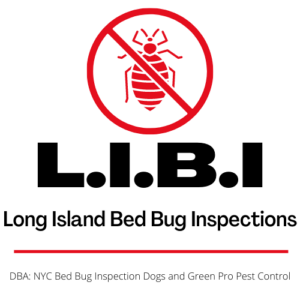As summer comes to a close the days are getting shorter and soon the chilly winds of autumn will be rolling in. But as we head into the colder months what does the change of season mean for bed bugs? Like all creatures bed bugs react to changes in the weather. Temperature, humidity, and even the amount of daylight affects their behavior.
So how does fall impact bed bugs and what do you need to know to protect yourself and your home?
Temperature and Bed Bug Activity
One of the most noticeable changes that comes with the arrival of fall is the drop in temperatures. Bed bugs, like most insects, are ectothermic creatures. That means their body temperatures is regulated by their environment.
As the weather cools down bed bugs tend to become less active. Their metabolism slows and they may require fewer blood meals to sustain themselves. During the fall and winter bed bug infestations can become less apparent.
Humidity and Bed Bug Survival
Humidity also plays a large role in the lives of bed bugs. These insects are more accustomed to environments with a moderate to high humidity. Fall typically brings drier weather, especially when compared with the summer months. The decrease in humidity can be detrimental to bed bugs. In essence they become dehydrated more quickly due to the lack of ambient humidity in the air.
In response bed bugs will do what they do best – hide. They’ll seek refuge in cracks, crevices and bedding. Anyplace that makes it easier for them to effectively retain moisture. This makes them less mobile and restricts their ability to easily find a host and obtain the blood meals they need to survive.
Daylight Hours and Bed Bug Behavior
With the arrival of fall comes the gradual reduction in daylight hours. Bed bugs are primarily nocturnal creatures. They prefer to venture out in darkness to feed on their hosts.
As the days grow shorter bed bugs tend to adapt their feeding patterns to match the season. They often become more active during the early morning or late evening, looking for opportunities to feed on hosts that are still asleep or just awakening. Like all parasites bed bugs react to their host’s behavior patterns. When we adapt to the seasons they tend to follow suit.
False Sense of Security
Fall’s impact on bed bugs may sound like good news for humans but we shouldn’t get ahead of ourselves. While bed bug infestations may appear to subside during the fall they are far from over.
The real problem with fall and bed bugs is that the infestations tend to become less conspicuous. This can make it a real challenge for homeowners to detect a growing infestation. This too often leads to a false sense of security and that can lead to delayed action in address the problem. This is the way small bed bug problems become major, and costly, infestations.
The Adaptable Bed Bug
Bed bugs are highly adaptable creatures. As their environment changes they may become more resilient and harder to eradicate. Bed bug populations that are left unchecked can rebound quickly which is why comprehensive treatment of all bed bug infestations is so important. Prolonged infestations can have a significant impact on our mental health, quality of sleep and overall well-being.
Bed Bugs in the Fall
As temperatures drop and humidity levels decrease bed bugs will adjust their habits to ensure their survival. Part of that adjustment is purely physical. But the adaptable bed bug will also make crucial behavioral changes in order to survive. One of those behavioral changes is to embed themselves even further into habitats that offer safety and easy access to food. Like it or not that typically mean our homes.
During the fall and winter months bed bug activity may appear to wane. But bed bugs are survivalists first and foremost. They can go long stretches without a blood meal and survive long periods of time at freezing temperatures.
The dry cold weather of fall and winter might slow these pests down but it won’t stop them entirely. Left unchecked they will return stronger and hungrier in the spring. Which is why monitoring your home for bed bug activity throughout the fall and winter is vital to avoiding full scale infestations when springtime comes.
Published by Scott Palatnik
If you believe you’ve brought bed bugs into your home or office give us a call. We can Help!
Now with 2 locations. On Long Island @516-619-6149 or in NYC @ 212-299-9186
We are Long Island Bedbug Inspections.
Your Bedbug Inspection and Elimination Solution.


